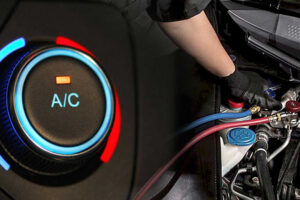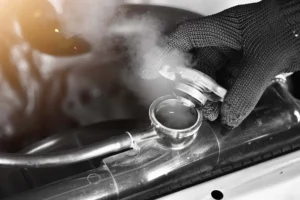Key Warning Signs Your Car Needs Attention
As a vehicle owner, ensuring that your car operates smoothly and efficiently is crucial. Regular maintenance is key to keeping your car in top shape, but there are times when issues arise that require the expertise of a professional mechanic. Recognizing the signs that your car needs attention can save you from more extensive and costly repairs down the road.
Understanding the Importance of Professional Mechanic Services
Before diving into the signs that your car may need a mechanic, it’s essential to understand the role of a professional mechanic. Mechanics are trained professionals with the expertise and tools necessary to diagnose and repair automotive problems. They can offer various services, including:
- Routine Maintenance: Oil changes, tire rotations, brake inspections, and more.
- Diagnostic Services: Using specialized equipment to identify issues.
- Repairs: Fixing or replacing faulty parts to restore vehicle functionality.
Regularly consulting a mechanic can help you maintain your vehicle’s performance and longevity, ensuring your safety on the road.
Common Signs That Your Car Needs a Mechanic
1. Warning Lights on Your Dashboard
One of the first signs that something may be wrong with your vehicle is the illumination of warning lights on your dashboard. Common warning lights include:
- Check Engine Light: This light indicates a variety of issues ranging from minor to severe. Ignoring it can lead to more significant problems.
- Oil Pressure Light: This light signifies that your engine may not be receiving adequate oil pressure, which could lead to engine damage.
- Battery Light: This indicates an issue with your vehicle’s electrical system or battery.
When any of these lights appear, it’s crucial to consult a mechanic as soon as possible.
2. Unusual Noises
Sounds can provide valuable clues about your vehicle’s condition. If you notice any unusual noises, it may be time to see a mechanic. Common sounds to listen for include:
- Grinding or Squealing Brakes: This may indicate worn brake pads or other brake system issues.
- Knocking or Pinging: This could signify problems with your engine’s combustion process.
- Hissing or Whistling: These sounds might suggest a leak in your engine’s cooling system or vacuum lines.
If you hear any of these noises, schedule an appointment with a mechanic for a thorough inspection.
3. Fluid Leaks
Fluid leaks under your car can indicate significant issues that require immediate attention. Common fluids to watch for include:
- Oil: A brown or black puddle could indicate an oil leak, which can lead to engine damage if not addressed.
- Coolant: A bright green, orange, or pink fluid may signify a coolant leak, affecting your engine’s temperature regulation.
- Transmission Fluid: A red or brown fluid leak could indicate a transmission problem.
If you notice any leaks, it’s essential to consult a mechanic to identify the source and address the issue promptly.
4. Difficulty Starting Your Car
If you experience trouble starting your vehicle, it could be a sign of an underlying problem. Common causes of starting issues include:
- Weak Battery: A battery that’s failing to hold a charge may need replacement.
- Faulty Starter Motor: If you hear a clicking sound when turning the key, it may indicate a faulty starter.
- Fuel System Issues: Problems with the fuel pump or fuel filter can hinder the engine’s ability to start.
If your car struggles to start consistently, don’t hesitate to reach out to a mechanic for assistance.
5. Decreased Fuel Efficiency
A noticeable decrease in fuel efficiency can be a red flag for underlying issues with your vehicle. Possible reasons for reduced gas mileage include:
- Worn Spark Plugs: Old or dirty spark plugs can lead to inefficient combustion.
- Clogged Fuel Filter: A blocked fuel filter can restrict fuel flow, impacting performance.
- Tire Issues: Under-inflated or misaligned tires can reduce fuel efficiency.
If you find yourself filling up more often without any changes in driving habits, it’s time to consult a mechanic.
6. Vibrations or Shaking
If your car shakes or vibrates while driving, it can indicate various issues, including:
- Wheel Alignment Issues: Misaligned wheels can cause uneven tire wear and vibrations.
- Tire Problems: Imbalanced or damaged tires can lead to shaking at higher speeds.
- Brake Problems: Vibration when braking could signal issues with your brake pads or rotors.
Consulting a mechanic can help identify the cause of these vibrations and ensure your safety on the road.
7. Smoke or Strange Odors
If you notice smoke coming from under the hood or strange odors while driving, it’s crucial to seek professional help immediately. Potential causes include:
- Smoke: White smoke may indicate coolant leaks, while blue smoke can signify burning oil. Both situations require immediate attention.
- Burning Smell: A burning smell could be a sign of overheating or electrical issues, which can pose serious safety risks.
Don’t ignore any signs of smoke or odors; they could indicate significant problems that need to be addressed by a mechanic.
8. Unresponsive Steering
Difficulty steering or a feeling of looseness in the steering wheel can indicate problems with your vehicle’s steering system. Common issues may include:
- Low Power Steering Fluid: Low fluid levels can cause steering difficulties.
- Worn Steering Components: Tie rods or other components may need replacement if they are worn or damaged.
If you experience any steering issues, it’s essential to consult a mechanic to ensure your safety while driving.
9. Frequent Overheating
If your car frequently overheats, it could signify an underlying issue with the cooling system. Possible causes of overheating include:
- Coolant Leaks: A leak can prevent the engine from cooling properly.
- Faulty Thermostat: A malfunctioning thermostat may not regulate coolant flow effectively.
- Blocked Radiator: A clogged radiator can impede the cooling process.
Frequent overheating can lead to severe engine damage, making it crucial to consult a mechanic at the first sign of trouble.
10. Exhaust Issues
If you notice excessive exhaust smoke or unusual colors in the exhaust, it could indicate serious engine problems. Common signs include:
- Black Smoke: This may signify excessive fuel consumption, possibly due to a faulty fuel injector.
- Blue Smoke: Blue smoke indicates oil burning in the engine, which can lead to costly repairs.
- White Smoke: This could suggest coolant entering the engine, indicating a blown head gasket.
If you experience any issues with your exhaust, it’s essential to consult a mechanic for a thorough inspection.
Conclusion
Being proactive about your vehicle’s maintenance is crucial for ensuring its longevity and reliability. Recognizing the signs that your car needs a mechanic can save you from more extensive damage and costly repairs down the road.
If you experience any of the symptoms mentioned above, don’t hesitate to reach out to Express Care of Southwick. Our expert team is ready to assist you with a comprehensive inspection and quality repairs to keep your vehicle running smoothly. Remember, timely intervention can make all the difference in the performance and safety of your car.




